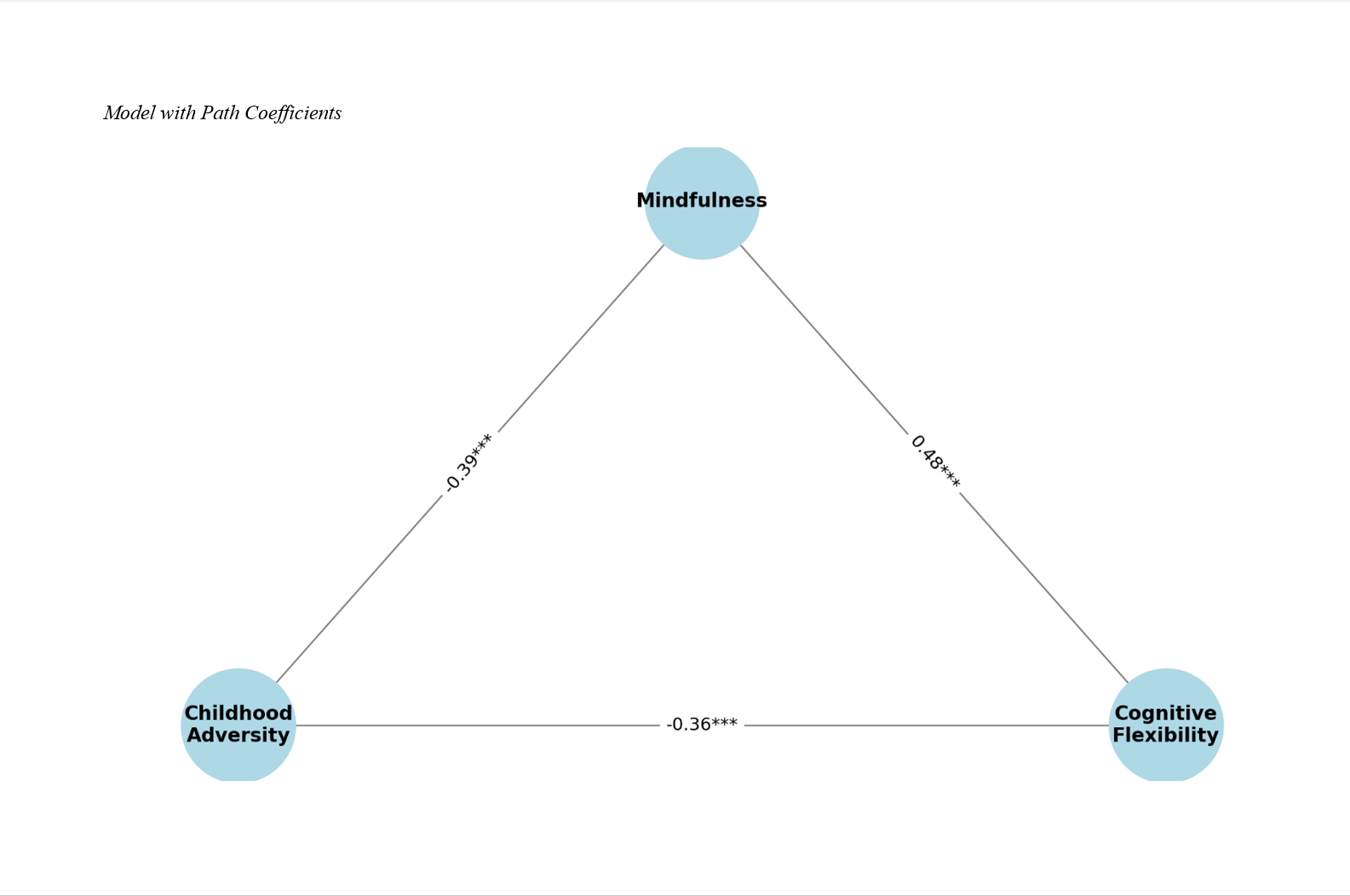The Relationship Between Childhood Adversity and Cognitive Flexibility The Moderating Role of Mindfulness
Keywords:
Childhood adversity, Cognitive flexibility, MindfulnessAbstract
This study aimed to investigate the relationship between childhood adversity and cognitive flexibility, and to examine the moderating role of mindfulness in this relationship. The study employed a descriptive correlational design and was conducted with a sample of 380 adult participants from Tehran, selected based on the Morgan and Krejcie table. Standardized tools were used to measure the variables: the Cognitive Flexibility Inventory (CFI) to assess cognitive flexibility, the Five Facet Mindfulness Questionnaire (FFMQ) to assess mindfulness, and the Childhood Trauma Questionnaire–Short Form (CTQ-SF) to measure childhood adversity. Data were analyzed using SPSS-27 for descriptive statistics and Pearson correlation, and AMOS-21 for structural equation modeling (SEM). Model fit indices and path coefficients were used to evaluate the direct, indirect, and total effects of the variables within the proposed model. Pearson correlation analysis revealed that cognitive flexibility was significantly positively correlated with mindfulness (r = .59, p < .001) and significantly negatively correlated with childhood adversity (r = –.44, p < .001). Additionally, mindfulness was negatively associated with childhood adversity (r = –.36, p < .001). Structural equation modeling confirmed that the proposed model had a good fit (χ²/df = 1.78, RMSEA = 0.044, CFI = 0.96, TLI = 0.95). Direct path analysis showed that childhood adversity had a significant negative effect on cognitive flexibility (β = –0.36, p < .001) and mindfulness (β = –0.39, p < .001), while mindfulness had a significant positive effect on cognitive flexibility (β = 0.48, p < .001). The indirect effect of childhood adversity on cognitive flexibility through mindfulness was also significant (β = –0.19, p < .001), indicating partial mediation. The total effect of childhood adversity on cognitive flexibility was strong and negative (β = –0.55, p < .001). The findings suggest that mindfulness plays a critical buffering role in preserving cognitive flexibility among individuals with a history of childhood adversity, highlighting the potential value of mindfulness-based interventions in promoting cognitive and emotional resilience.
Downloads

Downloads
Additional Files
Published
Submitted
Revised
Accepted
License
Copyright (c) 2025 Tiyam Abdollahi (Corresponding Author)

This work is licensed under a Creative Commons Attribution-NonCommercial 4.0 International License.







